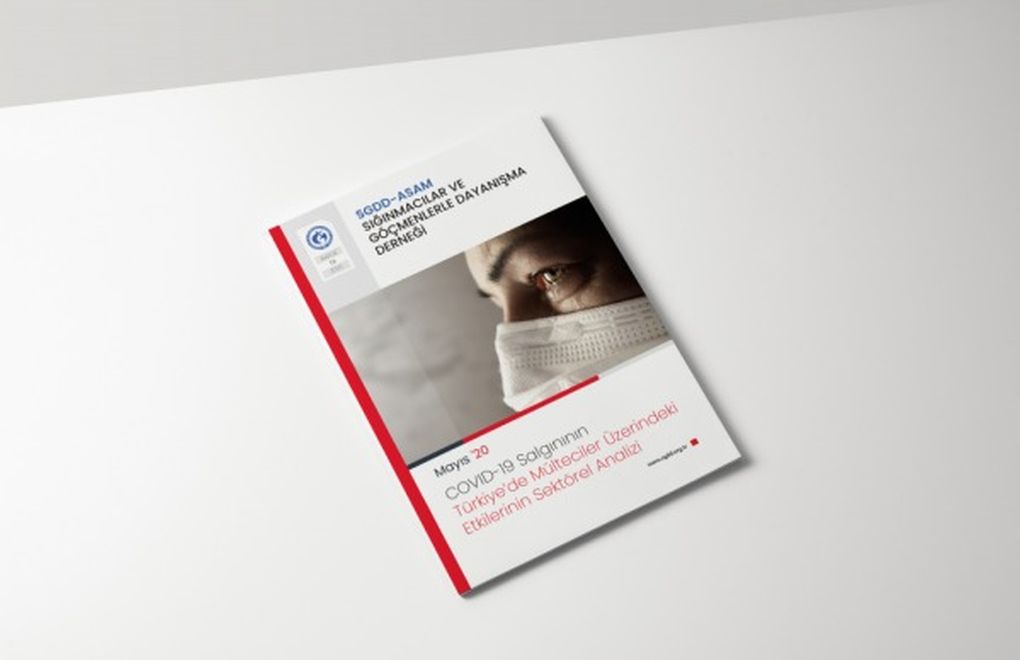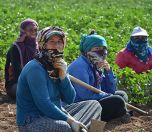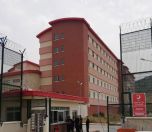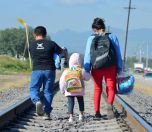Click to read the article in Turkish
The Association for Solidarity with Asylum Seekers and Migrants (SGDD-ASAM) has conducted a research into how the novel coronavirus (COVID-19) pandemic has affected the lives of refugees in Turkey.
As part of this research, the Association conducted surveys with 1,162 refugees, including 609 women, in the 18-70 age group in 48 provinces. While 906 participants were from Syria, 131 were from Afghanistan, 49 from Iraq, 20 from Iran, one from Palestine and one from Somalia.
Click here to read the full report (in Turkish)
'Difficulties in meeting food and hygiene needs'
According to the report released by the ASAM based on these surveys, 83 percent of refugees are not sufficiently informed about the outbreak.
While 65 percent of the participants said that they accessed information about coronavirus on social media and via other printed/visual means, 19 percent said that they got information from their neighbors or friends.
The rate of those who said that they were informed by the Ministry of Health and other public institutions is under 10 percent.
While 63 percent of refugees have difficulties in accessing food amid pandemic conditions, 53 percent have difficulties in meeting their hygiene needs. While 6.71 percent no longer have access to food amid coronavirus outbreak, 62.5 percent now have less access.
According to survey results, 52.84 percent of refugees cannot access necessary hygiene conditions while these conditions have been completely eliminated for 10.15 percent. 31.84 percent said that they had difficulties in paying their rent while 25.71 percent said that they could hardly meet their basic needs and 33.05 percent could hardly pay their bills.
The report has also revealed a decrease in employment rates among the refugees. While 18 percent said that they did not have a job before the outbreak, this rate has risen to 88.59 percent during the outbreak. Before the pandemic broke out in Turkey, 42.47 percent were working in daily jobs.
While 40.82 percent of refugees have been unable to work after the pandemic because their workplaces have been closed, 17.69 percent have been laid off, 11.59 percent cannot find a job, 9.52 percent have to stay home and 20.41 percent cannot work for other reasons.
'The cannot benefit from distance education'
According to the report, 69.84 percent of refugee children are enrolled in a school. But, 47.73 percent cannot benefit from distance education after the schools have been closed as part of pandemic measures.
Over half of the families of the children who cannot benefit from distance education said that their children were unable to follow the lessons on television or online because they did not have the necessary technological devices such as television, computers, etc.
While 54.76 percent cannot benefit from distance education because they do not have a television, computer or smartphone, 9.52 percent said that they were not sufficiently guided by the teacher, 19.05 percent cannot access it because of other reasons, 11.9 percent due to lack of information and 4.76 percent because they do not have access to the Internet.
15.23 percent of the participants said that they could not benefit from healthcare services in Turkey amid coronavirus outbreak.
'Unemployment is an urgent problem to be solved'
In concluding the report, the ASAM has noted that unemployment among the refugees in Turkey is a problem that needs to be solved urgently:
"The gradual increase in unemployment and the deprivation of a regular income aggravate people's conditions of housing and nutrition and make it more difficult to make compulsory payments such as rents and bills.
"It has been observed that especially the ones who depend on daily income and various aids to sustain their lives will be unable to make ends meet in the event that the period of pandemic lasts longer." (EMK/SD)









